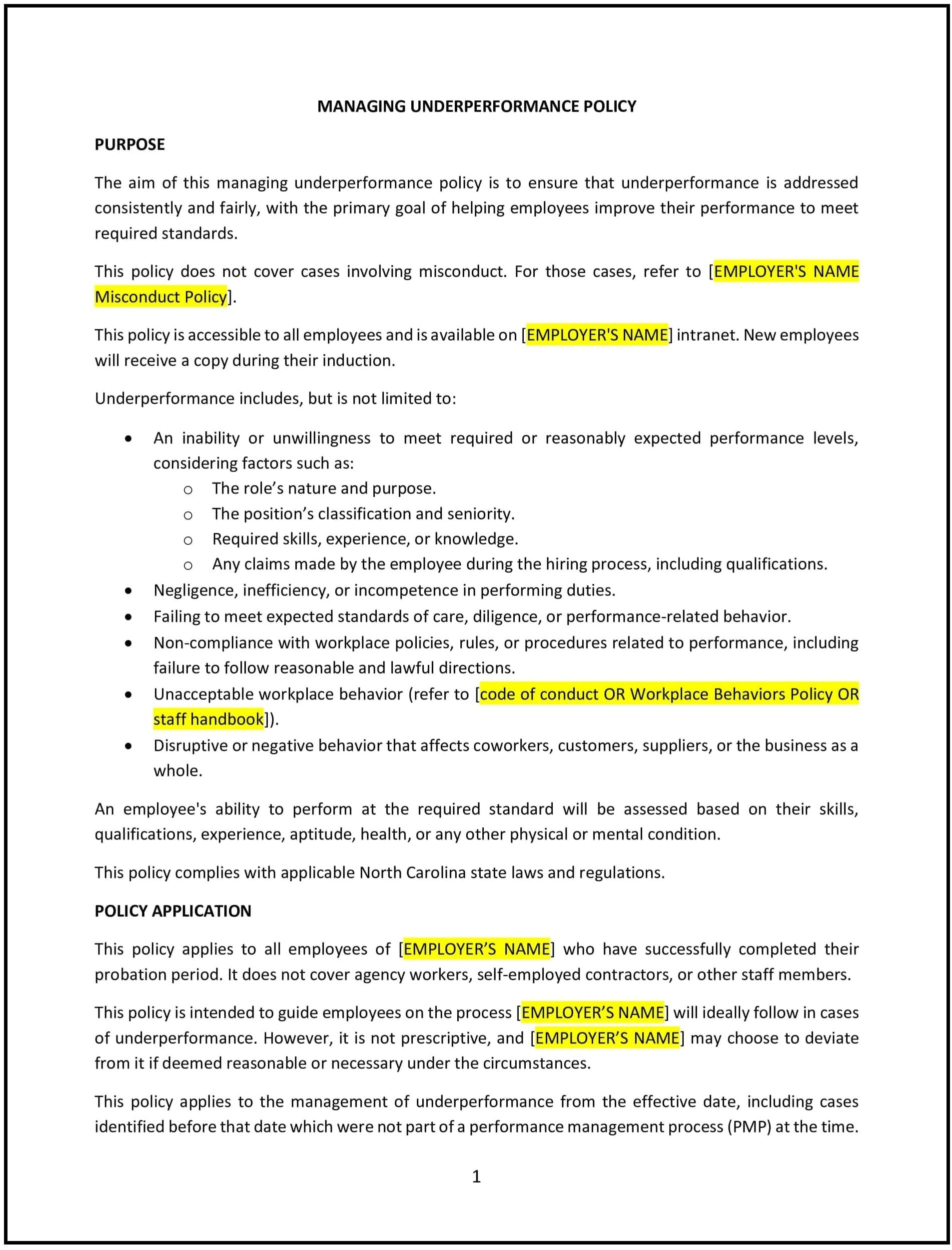Managing underperformance policy (North Carolina): Free template
Got contracts to review? While you're here for policies, let Cobrief make contract review effortless—start your free review now.

Customize this template for free
Managing underperformance policy (North Carolina)
A managing underperformance policy helps North Carolina businesses address situations where employees fail to meet performance expectations. This policy outlines the steps managers should take when an employee is not performing at the required level, from identifying performance issues to providing support and, if necessary, taking corrective actions.
By adopting this policy, businesses can address underperformance in a structured way that supports employee development while maintaining high standards of performance.
How to use this managing underperformance policy (North Carolina)
- Define performance expectations: Clearly outline the performance standards and expectations for each role within the company, including key performance indicators (KPIs) and measurable goals.
- Identify performance issues: Set criteria for identifying underperformance, such as missed deadlines, low productivity, or failure to meet objectives.
- Provide feedback and support: Establish a process for providing constructive feedback and offering support to employees struggling with performance, including training, coaching, or mentoring.
- Set improvement plans: Develop performance improvement plans (PIPs) that outline specific, measurable goals for improvement and set timelines for achieving these goals.
- Address corrective actions: Specify the steps that will be taken if an employee fails to improve after receiving feedback and support, which may include reassignment, disciplinary action, or termination.
- Reflect North Carolina-specific considerations: Ensure that the policy complies with North Carolina’s employment laws, including regulations regarding termination and discipline.
Benefits of using this managing underperformance policy (North Carolina)
This policy provides several benefits for North Carolina businesses:
- Improves performance: A clear policy helps identify underperformance early and provides structured support to improve employee output.
- Enhances employee development: By offering feedback and improvement plans, businesses support employees in achieving their full potential and advancing in their careers.
- Reduces legal risk: The policy helps ensure that performance management is conducted fairly and in compliance with North Carolina’s employment laws, reducing the risk of wrongful termination claims.
- Fosters a positive work environment: A structured approach to managing underperformance helps maintain a respectful and supportive work environment, even when performance issues arise.
- Boosts company productivity: Addressing performance issues promptly helps ensure that the company operates efficiently and that employees are meeting the expectations required for success.
Tips for using this managing underperformance policy (North Carolina)
- Communicate performance expectations clearly: Ensure that all employees understand the performance standards required for their roles and how they will be evaluated.
- Provide regular feedback: Managers should provide ongoing feedback to employees regarding their performance, both positive and constructive, to prevent issues from escalating.
- Monitor progress: Regularly assess whether the performance improvement plan (PIP) is being followed, and make adjustments if necessary to support the employee's development.
- Review the policy regularly: The policy should be reviewed annually to ensure it remains effective in addressing underperformance and complies with North Carolina’s employment laws.